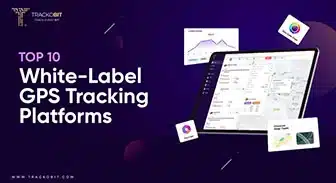-
TrackoBit
Manage commercial vehicles with the new-age Fleet Management Software
TrackoBit -
TrackoField
Streamline your scattered workforce with Field Force Management Software
TrackoField -
Features Resources
-
Blog
Carefully curated articles to update you on industrial trends. -
White Paper
Insightful papers and analysis on essential subject matters. -
Glossary
Explore an alphabetical list of relevant industry terms. -
What’s New
Get TrackoBit & TrackoField monthly updates here. -
Case Study
Explore the cases we solved with our diverse solutions. -
Comparisons
Compare platforms, features, and pricing to find your best fit.
-
About Us
Get to know TrackoBit: our team, ethos, values, and vision. -
Careers
Join the most dynamic cult of coders, creatives and changemakers. -
Tech Support
Learn about our technical support team and services in detail. -
Events
Check out the exhibitions where we left our marks and conquered. -
Contact Us
Connect with us and let us know how we can be of service.
What is Fuel Monitoring in Fleet Management Systems?
- Author:Ayushi Nagalia
- Read Time:6 min
- Published:
- Last Update: February 3, 2025
Table of Contents
Toggle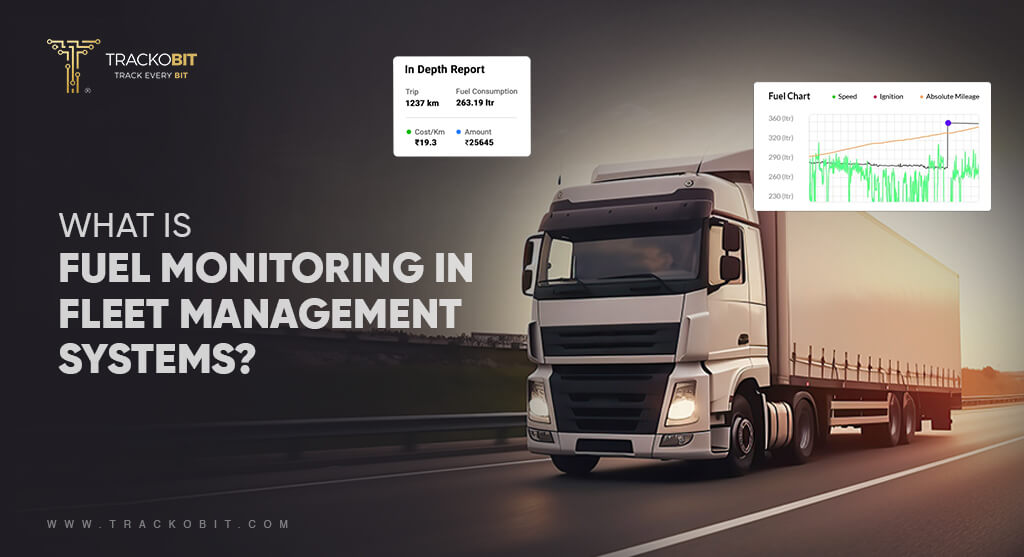
Fuel is the biggest cost in any fleet. Depending on the nature of the business, it can surpass even vehicle acquisition costs at times. It is the biggest fleet function to flow cash out of fleet managers’ hands.
Table of Contents
Toggle
It is to regulate the cash and energy flow that fleets need to function with fleet management software that comes with fuel monitoring systems.
Fuel consumption in India alone is as massive as 88.2 billion liters of diesel and 37.2 billion petroleum each year for only fuel-based commercial vehicles.
In this blog, let’s see what fuel monitoring in fleet management systems is. We’ll also see the purpose it serves in bettering the entire fleet’s functioning and business bottom line.
What is Fuel Monitoring in Fleet Management System?
This might come as a surprise, but according to research, most businesses end up spending about 24% of their fleet budget on fuel! A lot of factors end up contributing to these massive digits. Some of them include:
- Fuel consumption for running vehicles
- Fuel pilferage
- Rash driving
- Fluctuating fuel costs
Sure, most of these practices are inevitable. It is not possible to completely avoid rash driving and other factors. However, through fuel monitoring in fleet management systems, managers can certainly reduce consumption.
Fuel monitoring systems in fleet management software collect data on how fuel is filled and consumed in your vehicles. It gets accurate data that allows managers to determine vehicles’ running costs. On the surface level, fuel monitoring only helps in reducing fuel consumption. However, from a wider lens, it positively affects the entire fleet budget.
How Does Fuel Tracking Software Work?
Before technology made everything easier, fleet managers used to collect estimated fuel data on paper. Most of these data only included calculating when the fuel tank was filled and how fuel was ejected or consumed from vehicles.
As technology advanced, papers were replaced with excel sheets that make analyzing data much simpler. However, most of the data collected was still manual and estimated.
It was when fleet management software came along that an amalgamation of hardware and software made fuel monitoring interesting. Now, managers can install fuel level sensors in each of their vehicles’ tanks and integrate them with software.
With fuel sensors, the software can tell when and how much fuel was filled in a gas tank. Similarly, it can also tell when and how much fuel was consumed from the tank.
In fact, due to real-time tracking, fuel tracking software can also tell exactly what amount of fuel was consumed. This also helps in driver behavior analysis and route planning.
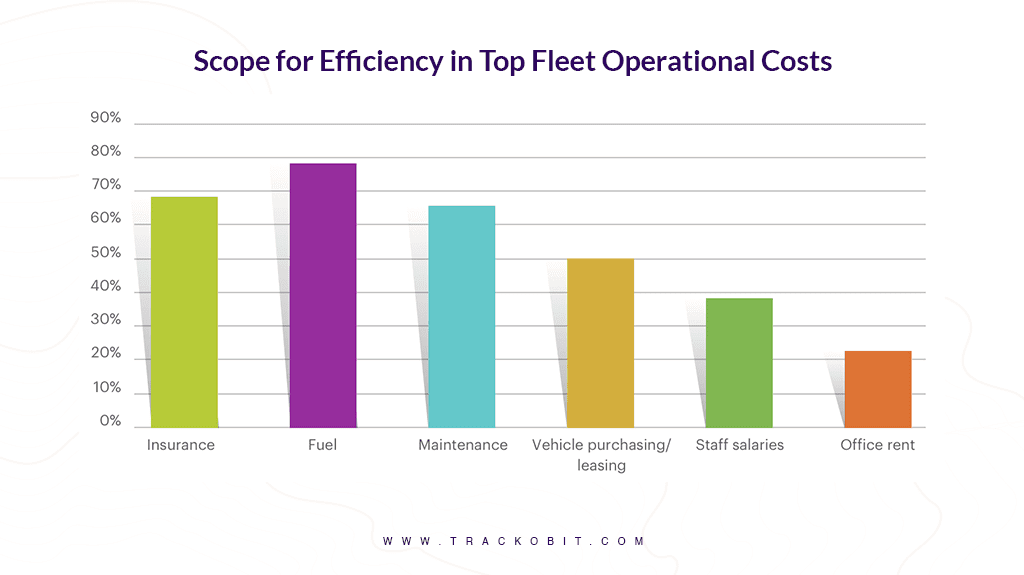
Features of Fuel Management Software
Fuel monitoring at one point used to be a fancy feature that didn’t get much attention. However, fuel monitoring has become a basic feature in fleet management software systems. So, what is it exactly that these systems offer? Let’s look into fuel monitoring’s major features.
- Real-time Tracking: Modern fleet management software and fuel monitoring systems not only let managers see live fuel consumption but also have much detailed insights into how the fleet is working. Through such details, managers can have a better view of the overall fleet functioning.
- Instant Alerts: Whenever the fuel tank is filled or fuel is ejected from it, managers will get instant alerts for the same. In case the tank is suddenly emptied, managers will be instantly alerted about the same as well.
- Productivity Reports: All the data collected through hardware and software integration allows for detailed productivity reports. Depending on the software’s potency, most of these reports are arranged to make them easy to understand and cover all aspects of fuel consumption.
- Multipurpose Use: It is important to note how multipurpose fuel monitoring is. Its benefits instead of just being limited to fuel consumption reduction spill over into other aspects such as fleet budgeting, route optimization, driver behavior analysis, and vehicle maintenance.
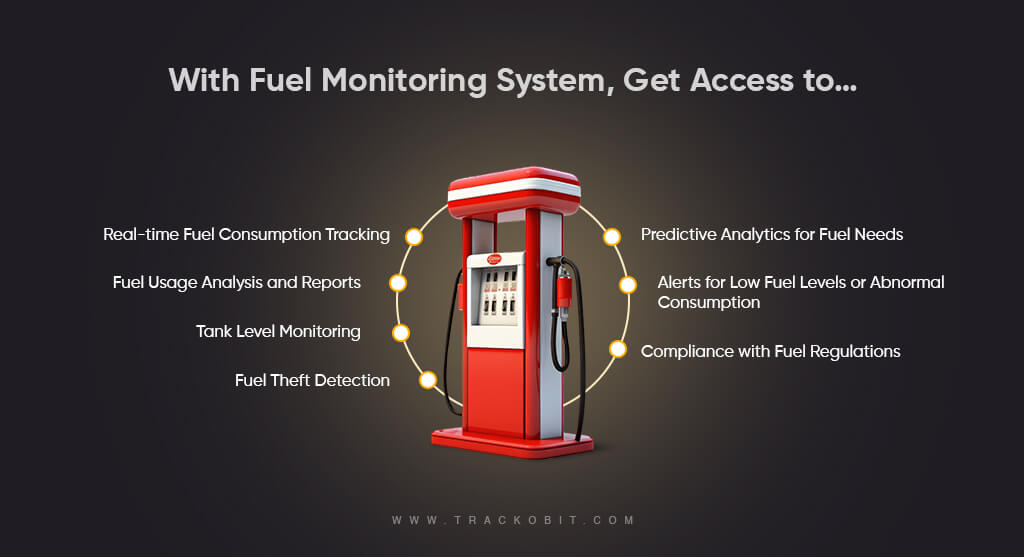
Advantages of Fuel Monitoring For Trucks
How managers choose to manage their fuel consumption quantum and costs can make or break their functions. The wisest thing to do in today’s time is to make use of the technological aid available. Therefore, in this section let’s talk about the multi-purpose advantages of fuel monitoring systems.
Improved Fuel Economy
- Surveys suggest that about 55% of fleets have experienced lower fuel consumption costs after implementing fuel management tools. This is mostly because managers get a better view of how resources are being used in their fleet and can reduce wastage.
Higher Data Accuracy
- With hardware and software integration, the possibility of errors is massively minimized. Since the major purpose of the fuel monitoring feature is to collect real-time data, managers can rest assured that the data they receive is accurate. After all, there is no scope for misunderstanding or miscalculations. The higher the accuracy, the better functions can be through higher insights.
Boost Business Profitability
- Boosting productivity for a fleet-run business can come from anything that minimizes operations costs. And that is exactly what fuel management does. When managers get a clear view of their resource consumption, they can devise ways to reduce it and in turn, increase business profitability.
Minimize Fuel Pilferage
- Fuel theft is an inevitable evil for all fleet managers. However, with fuel monitoring systems, fuel pilferage can be massively minimized. How? Because managers will get instant alerts whenever there is any suspicious fuel reduction from the tank. Therefore, they can take the required action right away.
Better Driver Supervision
- Driver supervision comes hand-in-hand with fuel monitoring businesses. After all, if drivers resort to hard acceleration, braking, cornering, idling, or oversleeping, they’ll be consuming extra fuel, right? Effective fuel management reports help managers weed bad drivers from good ones.
Effective Route Management
- Other than driver behavior management, real-time fuel monitoring systems also help in route planning. How? Because through the live data capturing, each route’s fuel consumption becomes clear. After all, be it due to terrain or road conditions, some routes do end up consuming more fuel than others, and hence should be avoided to save resources!
Eco-Friendly Operations
- The primary purpose of fuel monitoring systems is to reduce fuel consumption. And what happens when fleets consume less fuel? They maintain a reduced carbon footprint, allowing their operations and running to be slightly eco-friendly.
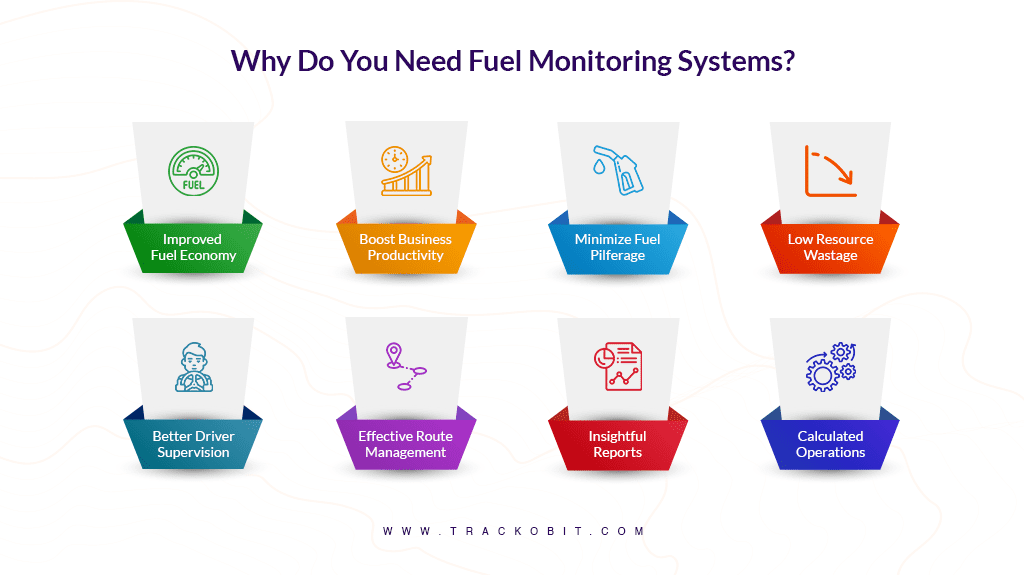
Insightful Reports
- Other than data collection, fuel monitoring systems are responsible for presenting information in an understandable format. These reports generally give a clear view of the fleet’s overall functioning. It is through this information that managers can make their operations more budget and resource-friendly, while sewing together the entire fleet management process.
Calculated Operations
- When managers are aware of the amount going for fuel into their vehicles, they have to make calculated decisions. Why? Because software provides them with insights into their fuel budget. Now. whatever monetary step they take will be informed and intended, instead of running on estimates and misinformation.
Summing Up
Fuel monitoring systems might seem minuscule since, on the surface, all they do is collect data and present it in bite-sized reports. However, when we look into the system’s applications, we can tell how important it is for the overall functioning of the fleet.
With fuel management in fleet management systems, managers can effectively reduce fraud and operational costs. They can also strengthen their workforce and route optimization systems. So, what are you waiting for? Turn to TrackoBit to increase your business profits today!
FAQs on What is Fuel Monitoring in Fleet Management Software!
-
What is a fuel monitoring system?
Fuel monitoring system software lets managers keep track of fuel consumption patterns, keep track of fuel refill and drainage activities, and get notifications for unusual consumption or idling patterns. Not only that, it even tells how much operational cost you are bearing on fuel purchases. This helps in better analysis and lets fleet managers improve their driving and consumption patterns.
-
What are the advantages of a fuel monitoring system?
A fuel monitoring system helps in assessing the fuel level and consumption patterns. They help fleet managers a lot in predicting their fuel consumption and associated costs. Not just that, it offers prompt alerts and notifications for suspicious fuel drainage activities, which further helps spot malicious fuel theft.
-
What all features are offered in TrackoBit’s fuel monitoring system?
Our adept fuel monitoring system lets you access: - Live fuel level updates with location and vehicle status. - Breakdown of total fuel consumption and costs - Fuel refill and drainage reports - Total mileage reports - Alerts for drainage or fuel refill activities
Ayushi Nagalia is a Senior Content Specialist at TrackoBit. She is a marketing maverick with a lush background in literature. With years of experience crafting content for various niches, she speciali... Read More
Related Blogs
-

Why is Driver Drowsiness Detection System Important for Fleet Management?
Shemanti Ghosh February 4, 2026A driver drowsiness detection system is critical for fleet management. It helps prevent fatigue-related accidents and reduces operational risks through…
-
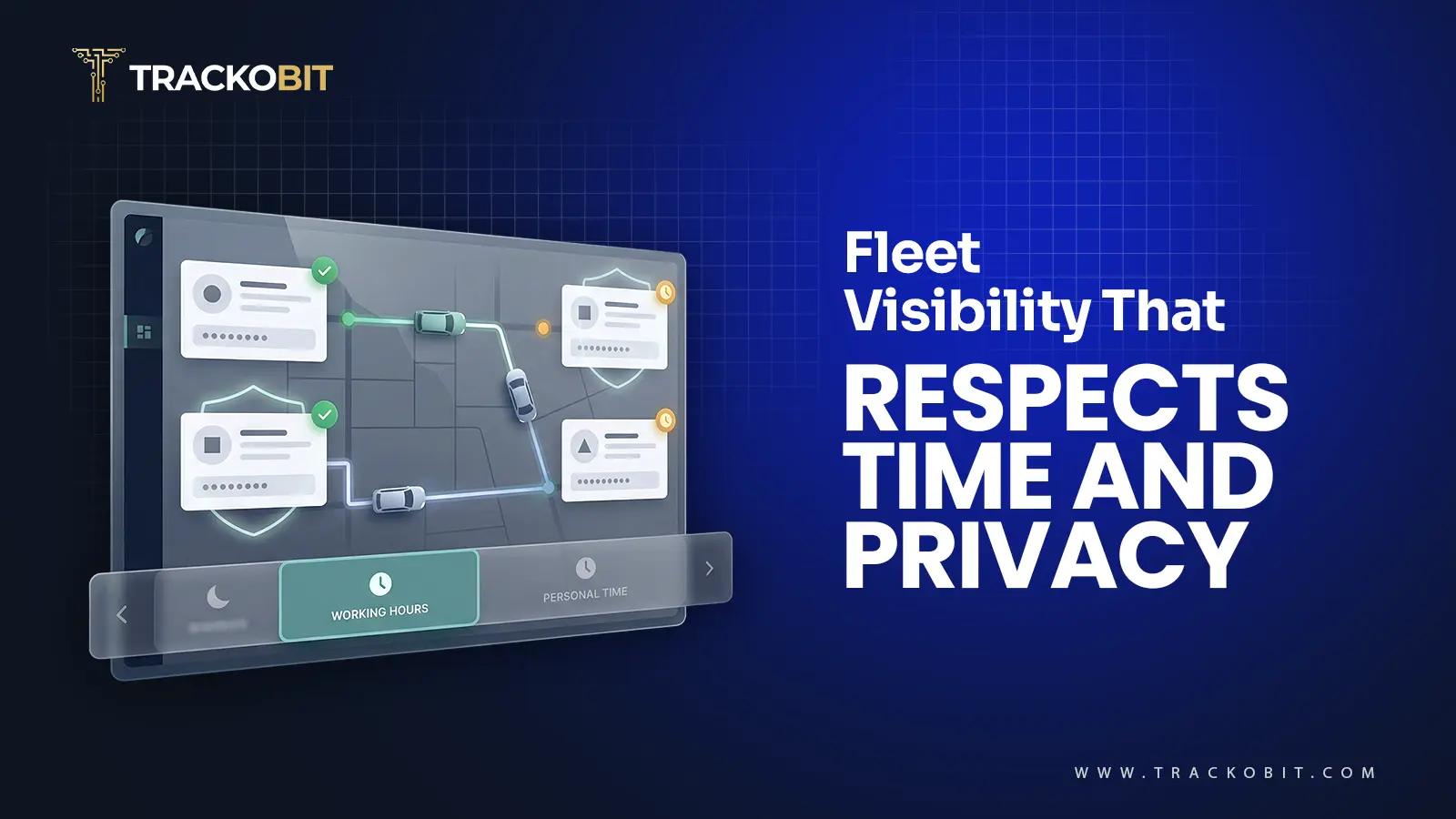
When Tracking Needs a Clock: Rethinking Fleet Visibility
Tithi Agarwal December 24, 2025Read on to understand why fleet tracking works better when it follows working hours. Because visibility should support operations, not…
-

What Makes TrackoBit’s Video Telematics Software Truly Next-Gen?
Shemanti Ghosh December 17, 2025TrackoBit’s video telematics software blends smart video intelligence with full server control. The result? Superior fleet reliability and safety.
-
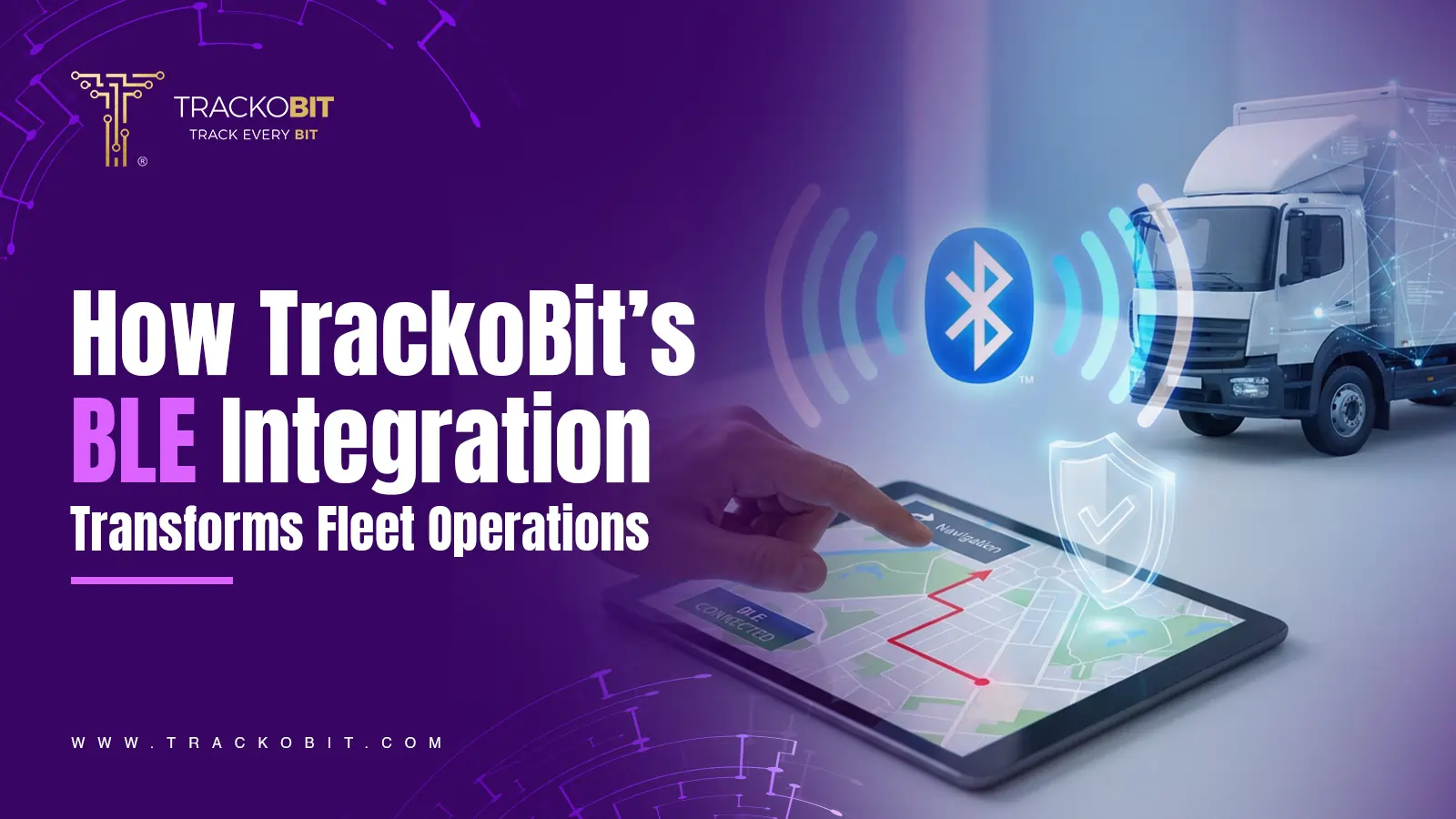
Plug, Pair, Perform TrackoBit Introduces BLE Sensor Integration
Tithi Agarwal November 26, 2025TrackoBit’s BLE Sensor Integration enables wireless, real-time monitoring with faster installs and accurate insights. It improves fleet efficiency, visibility, and…

Subscribe for weekly tips to optimize your fleet’s potential!
Your inbox awaits a welcome email. Stay tuned for the latest blog updates & expert insights.
"While you're here, dive into some more reads or grab quick bites from our social platforms!"Stay Updated on tech, telematics and mobility. Don't miss out on the latest in the industry.
We use cookies to enhance and personalize your browsing experience. By continuing to use our website, you agree to our Privacy Policy.



































